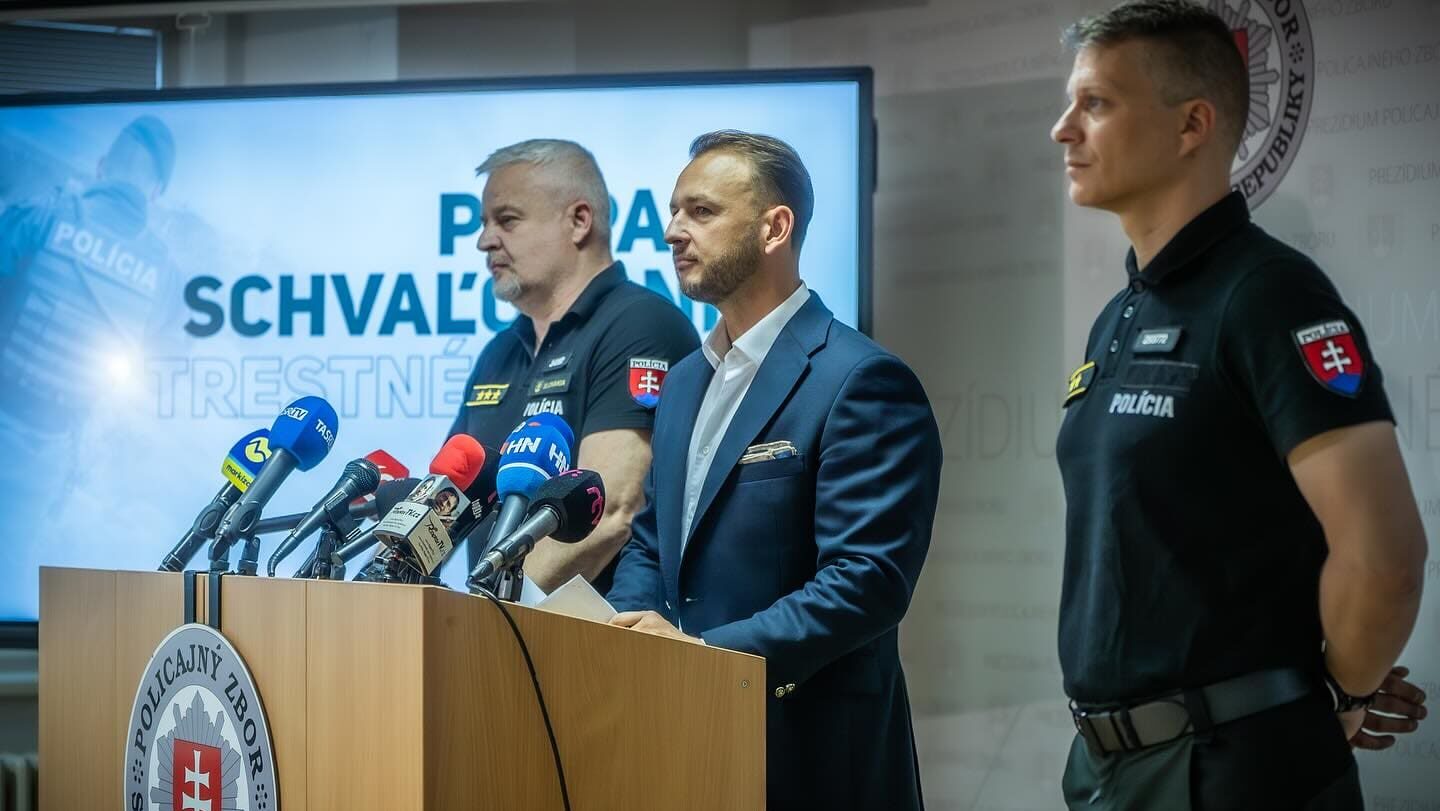
Slovakian Interior Minister Matúš Šutaj Eštok (center)
Photo: Matúš Šutaj Eštok on Facebook, 24 May 2024
It will take months for Slovakian Prime Minister Robert Fico to recover from his injuries, and get back to work, according to Foreign Minister Juraj Blanár on Friday, May 31st. The populist prime minister was shot multiple times at point-blank range by 71-year-old Juraj Cintula in the central Slovakian town of Handlová, after a government meeting on May 15th. The 59-year-old Fico was left fighting for his life and had to undergo a number of operations.
Fico had been treated in a hospital in Banská Bystrica but was transferred last week to his home in the capital Bratislava where he will be receiving home nursing care. According to Miriam Lapuníková, the hospital’s director, the prime minister’s health is progressing well, but his rehabilitation will be tough and lengthy.
Media reports say Fico is able to eat and move around independently, with the aid of crutches. He has to adhere to a strict diet. He does not need round-the-clock medical assistance or special medical treatment, although a doctor will visit him regularly. The assassination attempt resulted in Fico’s hip being injured, and a part of his small intestine having to be removed.
Key suspect Juraj Cintula is a poet and writer, and former security guard at a shopping mall. With no previous criminal record, he had taken part in previous anti-Fico demonstrations. The motive for the attack was dissatisfaction with the current government, according to Interior Minister Matúš Šutaj Eštok. Fico won parliamentary elections last September on an EU-critical, anti-immigration and anti-war platform.
The interior minister refuted media rumours in a TV appearance—including reports that Cintula is currently receiving treatment in a psychiatric ward—saying he has not been given any such information.
The comment came after MP Branislav Gröhling, leader of the Freedom and Solidarity (SaS) opposition party, described Cintula as “a 70-year-old retiree, seemingly confused, according to all appearances.”
“Don’t spread disinformation, Mr. Gröhling,” the interior minister retorted.
If convicted, Cintula faces the rest of his life behind bars. His wife told local media that she had recently received a letter from her husband in which he writes that he is being treated well by the police, but is not feeling well and has trouble breathing. His wife says she had no inclination of what Cintula was preparing to do, and that on the day of the shooting, he had acted the same as on any other day.
In response to the assassination attempt, the Slovakian government is preparing to amend laws to provide further protection to the highest-ranking state officials. One of the proposals is for the president of the country, the parliament speaker, and the prime minister to have an official state residence for exclusive use during their time in office, which can be properly protected. The main opposition party Progressive Slovakia’s leader Michal Šimečka said the coalition and opposition should draft and approve the measures together to send the public a signal of reconciliation.
Interior Minister Matúš Šutaj Eštok called for an end to the spreading of hatred, suggesting that opposition protests against Fico and his government had played a part in stoking political tensions that led to the assassination attempt. Opposition parties, together with EU institutions and Western liberal elites, have criticised Fico for implementing what they deem to be ‘anti-democratic’ measures since coming to power in October, and have organised a series of protests against his government. The sovereigntist, anti-globalist Slovak cabinet believes it is being singled out as punishment for prioritising a political agenda that is not to the EU’s liking.
According to the latest opinion polls, sovereigntist parties have a slight advantage over their more pro-EU opponents. At this weekend’s European elections, of the 15 European Parliament seats allocated to Slovakia, the governing parties are expected to gain six. Liberal Progressive Slovakia is projected to get four, right-wing Eurosceptic Republika two, and three seats will go to three smaller opposition parties.
